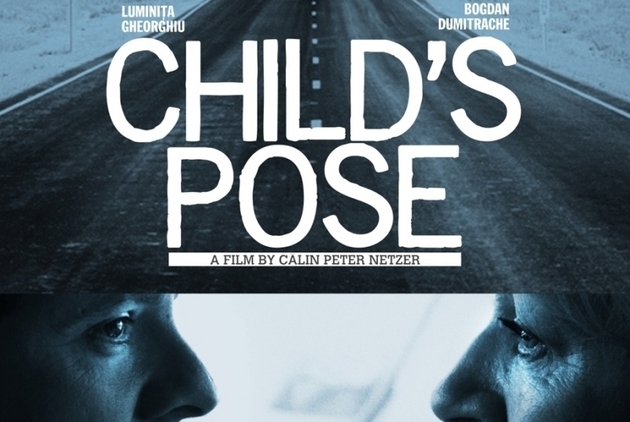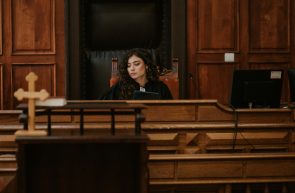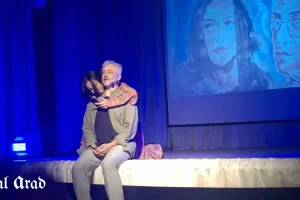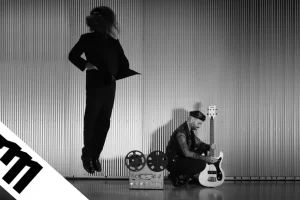„Poziția copilului”, elogiat în Washington Post

Filmul „Pozitia copilului”, a regizorului roman Catalin Netzer, are parte de o noua recenzie pozitiva, de aceasta data in presa americana.
Sub titlul „Un thriller roman convingator, complex si derutant”, Washington Post lauda noul val al filmografiei romanesti, aparut in ultimul deceniu.
In opinia criticului Ann Hornaday, „Romania pare a fi dat nastere propriului gen de film, un set de conventii vizuale si narative ce pot fi descrise drept ‘naturalism birocratic'”, gen in care incadreaza „Moartea domnului Lazarescu”, „4 luni, 3 saptamani si 2 zile” si „Pozitia copilului”, care „iau prizonieri spectatorii in interiorul coridoarelor a la Kafka ale apatiei si coruptiei, oficiale si neoficiale, din Europa de est post-sovietica”.
Thrillerul psihologic o are in centru pe actrita Luminita Gheorghiu, care „intruchipeaza clasa superioara urbana ce starneste resentimente” si „navigheaza cu abilitate printr-un sistem care inca functioneaza pe baza favorurilor si mitelor ce reprezinta o intoarcere atavica la era sovietica, intr-o societate inca in chinurile definirii formelor convenabile de civilitate si responsabilitate”.
Autorul recenziei sfatuieste spectatorii sa priveasca „Pozitia copilului” inainte de cina sau de o iesire la cafea, intrucat filmul se preteaza discutiilor aprinse.
_________________________________________
‘Child’s Pose’ movie review: Romanian thriller is compelling, complex and confounding

Zeitgeist Films – Cornelia (Luminita Gheorghiu) is an overbearing, oppressive mother seeking to keep her son, Barbu, out of trouble in the Romanian film “Child’s Pose.”
Over the past decade, Romania seems to have spawned its very own film genre, a set of visual and narrative conventions that might be roughly described as “bureaucratic naturalism.” Such films as “The Death of Mr. Lazarescu” and “4 Months, 3 Weeks and 2 Days” haven’t immersed viewers as much as trapped them inside the Kafkaesque corridors of apathy and corruption — official and unofficial — in post-Soviet Eastern Europe.
The experience of watching these portraits of drab modern life, which look so jaggedly spontaneous that it’s easy to miss their superb sense of craft, is either tedious or exhilarating, depending on your point of view. To some, Romanian cinema has become tantamount to watching a particularly institutional shade of paint dry. But to others, the microscopic detail and intimate, observant cinematic gaze possess the pulse and inexorable propulsion of life itself.
The psychological thriller “Child’s Pose,” the latest example of Romania’s house style, stars Luminita Gheorghiu, a veteran of both “Lazarescu” and “4 Months,” here taking a well-deserved pass at center stage. She plays Cornelia Keneres, a prosperous Bucharest architect who, as the movie opens, is commiserating with her sister over drinks and cigarettes about her son, Barbu (Bogdan Dumitrache), who is living with a woman of whom Cornelia doesn’t approve.
True to Romanian form, director Calin Peter Netzer (who wrote the screenplay with Razvan Radulescu) keeps his camera close to the women, swishing and swooping between them, often landing on one face while the other person is talking. It can be a maddening, too-obvious visual tic; however, he eventually settles down, and “Child’s Pose” begins to cast its spell, drawing viewers into a fascinating, troubling and finally controversial portrait of maternal anxiety at its most smotheringly neurotic.
One piece of advice: See “Child’s Pose” in time for dinner or a long cup of coffee afterwards. This is a film meant for spirited discussion, and even argument.
Something happens to Barbu — or, more accurately, an action of his precipitates a cascade of events — that brings Cornelia back into his orbit with a vengeance, as she does all she can to get him out of a serious legal scrape. In keeping with Romanian new-wave tradition, Netzer treats the audience to an inside view of the country’s institutional sub-culture, including stops at a small-town police station and a hospital (where it looks for all the world like Dumitrache literally gives blood for his role).
It soon becomes apparent that, far from just another overprotective mother, Cornelia embodies an urban upper class that elicits immediate resentment in the hinterlands. What’s more, her canny navigation of a system that still runs on favors and bribes represents an almost atavistic return to Soviet-era form in a society that’s still in the painful throes of defining workable forms of civility and accountability. What better way to embody the lingering effects of Mother Russia than with one of the most oppressive and overbearing movie mothers of recent memory?
If Cornelia represents Romania’s Cold War past (and bourgeois self-delusion), then by right Barbu stands for the New Romania, and the portrait he presents is far from an optimistic one. He’s clearly suffering from unspoken psychic wounds — which he angrily lays at his mother’s well-heeled feet — but he’s a petulant, unpleasant figure, nonetheless. As “Child’s Pose” proceeds, Cornelia will not be deterred in her snooping and scheming, but her encounters along the way are open to interpretation. Barbu’s girlfriend, Carmen (Ilinca Goia), insists he can’t ask for what he wants, an observation belied by his constant stream of curt demands to his mother; Barbu’s father (Florin Zamfirescu) is ineffectual at best; and one crucial meeting at a shopping mall, with someone who witnessed the inciting event, is maddeningly inconclusive.
Few viewers will come away from “Child’s Pose” without strong feelings about Cornelia and her behavior — whether they see it as pathological or an example of political allegory at its most shrewd. But even the most passionate judgments might be chipped away after the film’s amazing final sequence, which the director begins in a cramped home kitchen and ends by masterfully framing a pivotal encounter in a car’s rearview mirror.
The question of whether what we’re witnessing is masterful manipulation or genuine catharsis is just one more mystery to work out in the wake of a compelling, complex, confounding film.
★ ★ ★ ½















Comentariile portalului
Am doar o comparație de făcut, cu două personaje, aparent diferite, dar cu o prestație politico-umană, foarte asemănătore: - Ion Iliescu și Călin Bibarț ! . (...)
Și când tranvaiul deraiază sau se întâmplă diferite probleme ,,îmi plătiți voi taxi sa merg acasă , de exemplu eu fac numa schimbul doi și ptr mine (...)
Locul acestui Bulbuc este după gratii împreună cu toată Mafia care la promovat de la un anturaj la dudină la super mega directorul